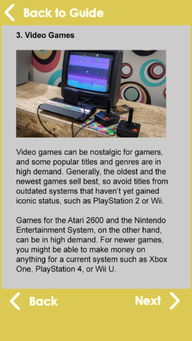Understanding the Basics of Monetizing Website Links

Monetizing your website links can be a lucrative way to generate income. Whether you’re a blogger, a content creator, or simply someone with a passion for the web, there are several strategies you can employ to make money from the links on your website. Let’s dive into the details.
1. Affiliate Marketing

Affiliate marketing is a popular method for making money from website links. It involves promoting products or services offered by other companies and earning a commission for each sale or referral generated through your website. To get started, you’ll need to:
- Choose a niche that aligns with your website’s content.
- Sign up for an affiliate program that offers products or services relevant to your niche.
- Integrate affiliate links into your website content, ensuring they are relevant and valuable to your audience.
- Monitor your affiliate links and track your earnings.
2. Display Advertising

Display advertising involves placing ads on your website, which can generate revenue through various models:
- CPC (Cost Per Click): You earn money each time a user clicks on an ad.
- CPM (Cost Per Mille): You earn money based on the number of impressions (thousand views) an ad receives.
- CPS (Cost Per Sale): You earn money when a user makes a purchase through an ad.
Some popular advertising networks include Google AdSense, Media.net, and BuySellAds.
3. Selling Ad Space
Instead of using an advertising network, you can sell ad space directly to advertisers. This can be more lucrative, but it requires more effort to find and manage advertisers:
- Research potential advertisers and their target audience to ensure they align with your website’s niche.
- Set competitive ad rates based on your website’s traffic and audience demographics.
- Communicate with advertisers to negotiate terms and finalize agreements.
- Provide advertisers with ad creative guidelines and track their performance.
4. Sponsored Content
Sponsored content involves creating content that is paid for by a third party. This can be in the form of articles, videos, or social media posts. To monetize sponsored content:
- Develop a sponsored content policy to ensure transparency and maintain your audience’s trust.
- Reach out to brands and companies that align with your website’s niche.
- Negotiate sponsored content rates based on your audience size and engagement.
- Ensure sponsored content is valuable and relevant to your audience.
5. Email Marketing
Email marketing can be a powerful tool for monetizing your website links. By building an email list, you can promote products, services, or affiliate offers directly to your subscribers:
- Implement an email subscription form on your website.
- Offer an incentive for subscribers, such as a free eBook or exclusive content.
- Segment your email list to target specific groups of subscribers with relevant offers.
- Monitor email campaign performance and adjust your strategy accordingly.
6. Selling Digital Products
Creating and selling digital products, such as eBooks, courses, or stock photography, can be a great way to monetize your website links. To get started:
- Identify a niche or topic that you are knowledgeable about.
- Develop a high-quality digital product that provides value to your audience.
- Choose an appropriate platform for selling your digital product, such as your website, Amazon, or Gumroad.
- Market your digital product through your website, social media, and email list.
7. Monetizing Website Traffic
Monetizing your website traffic can be achieved through various methods, such as:
- Subscription Models: Charge users a monthly or annual fee for access to exclusive content or services.
- Pay-Per-View: Offer content that users can purchase on a per-view basis.
- Freemium Models: Provide basic content for free, with premium features



